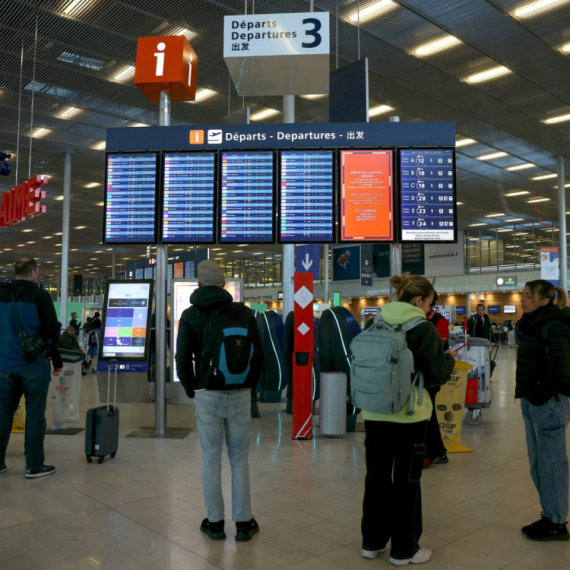Analyst looks at procedure to elect new patriarch
The Constitution of Serbian Orthodox Church (SPC) envisions that the Church Assembly should meet within three months in order to elect a new patriarch.
Monday, 16.11.2009.
10:29

The Constitution of Serbian Orthodox Church (SPC) envisions that the Church Assembly should meet within three months in order to elect a new patriarch. The Holy Synod did not decide last night on a date of the session of the Election Assembly, as it met in the wake of the passing of His Holiness Patriarch Pavle. Analyst looks at procedure to elect new patriarch Weekly NIN reporter and expert for church issues Jovan Janjic expects that the Election Assembly will be scheduled according to the Constitution of the Serbian Orthodox Church, by February 15. The Synod, the "church government", will call a Church Assembly meeting which then decides whether it will become an Election Assembly, Janjic explained for B92. “All the bishops attend the Election Assembly, while candidates for the new patriarch are all those who have had five years of eparchy service, that is, all those who have run an eparchy for five years," he continued. Three bishops who receive the most votes are then entering the "triple candidacy", but under the condition that they get a majority of over half of votes, Janjic added. “The names of the three elected bishops are put into separate envelopes which are then placed inside the Holy Gospel. The Gospel is placed at the holy throne in the church. After the liturgy, a monk appointed by the Assembly takes out the envelopes from the Holy Gospel, shuffles them in his hands and then picks out one of them,” Janjic explained. The envelope is then handed to the chairman of the Election Assembly who then reads the name of the new Archbishop of Pec, Metropolitan of Belgrade-Karlovac, the Serb Patriarch – which is the full title of the leader of the Orthodox Serb Christians. This way of selection in essence "by draw", is referred to as apostolic. Patriarch Pavle was the first patriarch to be elected this way and the NIN journalist believes that this practice will continue. According to him, the Church turned to these rules, adopted in 1967, as a “special amendment to the Constitution of the Serbian Orthodox Church” in order to avoid the influence of politics. “I believe that there won’t be any attempts to change this article of the Constitution in order to elect a new patriarch by the majority of votes. If such thing were to happen, it would be a clear sign that politics is getting involved into the election of the patriarch, which would have serious consequences for the spiritual and political life in Serbia,” Janjic concluded.
Analyst looks at procedure to elect new patriarch
Weekly NIN reporter and expert for church issues Jovan Janjić expects that the Election Assembly will be scheduled according to the Constitution of the Serbian Orthodox Church, by February 15.The Synod, the "church government", will call a Church Assembly meeting which then decides whether it will become an Election Assembly, Janjić explained for B92.
“All the bishops attend the Election Assembly, while candidates for the new patriarch are all those who have had five years of eparchy service, that is, all those who have run an eparchy for five years," he continued.
Three bishops who receive the most votes are then entering the "triple candidacy", but under the condition that they get a majority of over half of votes, Janjić added.
“The names of the three elected bishops are put into separate envelopes which are then placed inside the Holy Gospel. The Gospel is placed at the holy throne in the church. After the liturgy, a monk appointed by the Assembly takes out the envelopes from the Holy Gospel, shuffles them in his hands and then picks out one of them,” Janjić explained.
The envelope is then handed to the chairman of the Election Assembly who then reads the name of the new Archbishop of Peć, Metropolitan of Belgrade-Karlovac, the Serb Patriarch – which is the full title of the leader of the Orthodox Serb Christians.
This way of selection in essence "by draw", is referred to as apostolic.
Patriarch Pavle was the first patriarch to be elected this way and the NIN journalist believes that this practice will continue.
According to him, the Church turned to these rules, adopted in 1967, as a “special amendment to the Constitution of the Serbian Orthodox Church” in order to avoid the influence of politics.
“I believe that there won’t be any attempts to change this article of the Constitution in order to elect a new patriarch by the majority of votes. If such thing were to happen, it would be a clear sign that politics is getting involved into the election of the patriarch, which would have serious consequences for the spiritual and political life in Serbia,” Janjić concluded.
















Komentari 5
Pogledaj komentare